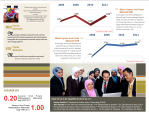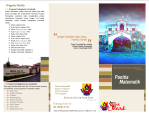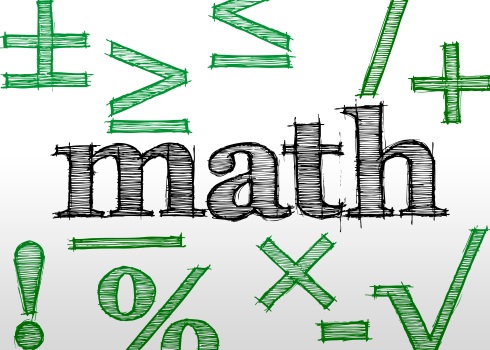Berikut adalah brosur Panitia Matematik bagi tahun 2011..klik gambar untuk paparan lebih jelas
Tom Lehrer: New Math
1 MarThomas Andrew “Tom” Lehrer lahir pada 9 April 1928, seorang penyanyi, penulis lirik, pencipta lagu, pemain piano dan ahli matematik. Pernah menjadi Pensyarah Matematik dan Teter Muzik. Mencipta lagu-lagu humor berkenaan Matematik, Kimia dan Sains yang direkodkan pada tahun 1950-an dan 1960-an
How To Get Smart in Math
20 FebIt is said that when King Ptolemy asked for an easier way of learning mathematics, Euclid (the inventor of geometry as we know it) replied,
“There is no royal road to geometry”.
For many people, math isn’t a strong suit. If you struggle with it, read on to learn how you can improve your understanding and excel in the subject.
Steps
- Enroll in a math class.
-
Pay attention in class. You’re not going to get any better at math if you don’t listen or if you don’t know what’s going on. Listen and pay attention to what the teacher is saying.
-
Pay particular attention to the rules, properties, formulas, equations, and methods, if you are to that point in math. Those are the tools of math, and will make math and computation much easier for you. So learn to rely on them like a good carpenter would his saw, tape measure, hammer, etc.
-
Participate. Even if you don’t know the answer to a question, you can surely make an educated guess. So what if you’re wrong? At least you tried. And hey, you just may be right!
-
Ask many questions. Even Einstein asked questions, so why shouldn’t you? If you don’t understand something, ask the teacher. You’re not going to suddenly understand it by staring at the problem. If you don’t want to ask a teacher, ask a nearby student, or friend.
-
Seek math help. If you still need help, ask the teacher if there is somewhere you can go for assistance. Find out if there is a study hall or tutoring program, or ask if a teacher could give you extra help before or after class.
-
Memorize your multiplication tables. This is crucial for mastering arithmetic.
-
Write out your work. For example, when working out equations, divide your solution into steps, writing down what you did you get to the next step.
- Writing out your work helps you to keep track of the work as you do it, and it may help you get partial credit if you make a mistake somewhere.
- Writing your steps out will show you where you went wrong
-
Attempt ALL the work that is given to you. After attempting a few examples, you will get the hang of it!
-
Review your graded homework assignments when they are returned to you. Try to figure out where you went wrong. Ask your teacher to help you review any problems you still don’t understand.
Tips
- Make sure you do your homework. You could even write out your own problems to practice.
- Try to understand what you are doing. Don’t just “plug and chug”. For example, if you are learning to add larger numbers, think about why you are carrying the excess over to the next place, and if you still don’t understand, ask.
- As you move beyond arithmetic in your study of mathematics, into algebra, geometry, and so on, the new things you learn will start to build upon the things you have already learned. Thus, make certain that you have a firm grasp of each lesson before moving on.
- Even if math is challenging for you, try not to fear it. Nervousness will just make matters worse. Instead, be patient with yourself and take the time to learn step by step.
- Have fun. Even though it may not seem like it yet, mathematics can be remarkably beautiful for its order and elegance.
- Don’t sit out just because you’re afraid of making mistakes. Try something, even if you’re not quite sure yet.
- Whether we like it or not, the ability to make quick and accurate arithmetic calculations plays an integral role in both our business and personal lives. Interestingly, arithmetic stimulates brain activity in both the left and right hemispheres of the frontal lobes more than does reading or listening to music. Insofar as the frontal lobes control our motor function, problem solving, memory, language, judgment, impulse control, and social/sexual behavior, appropriate frontal lobe stimulation may have far-ranging beneficial effect on our daily activities.
source: wikihow
How to Learn Math
19 FebHere are some important things to remember when learning mathematics (known as math or maths for short). Learning mathematics is like learning another language, so at first it will be hard but it will get progressively easier. A lot of concepts in mathematics are inter-related, so knowing one helps you understand many others. Being frustrated is not a problem, it is a natural part of the learning process, so don’t give up.
Steps
- Create learning time. Make sure you have at least an hour a day to dedicate to learning mathematics.
-
Become acquainted with the vocabulary. Keep a mathematical dictionary by your side as you study. Many areas of mathematics require knowing a certain amount of mathematical vocabulary and it is less frustrating to be able to quickly look up the meanings.
-
Get at least two reference books. This way, you will have two different explanations and one of the explanations may make better sense to you than the other; or a combination of both will help you to “get it”.
-
Tackle subjects along with their prerequisites. Many concepts are related and knowing one helps you understand the other. If you didn’t grasp one concept as well as you should have earlier, set aside a little time to revisit it and learn some more and then combine it with the new concept. Often, the new concept will help the older one to gel in your mind.
-
Practice with many problems. Do as many mathematics problems as you can lay your hands on – even those beyond the class. This will assist you in getting a good feel for the topics and will likely help much of mathematics become “second nature” to you.
-
Always ask for help if you don’t know how to do something. Also never stop trying to learn something because you say it is too hard keep working at it.
Tips
- Frustration is part of the process – don’t give up just because you have a hard time understanding some concept.
- Tackle all the basic stuff all at once and spend an hour every day learning one of the basics like algebra and geometry.
- A good tutor once a week can really help to straighten out math problems; make sure your tutor is very understanding and can express the concepts well. Try university level students as a good source of tutors.
- Regular practice will ease your challenges.
- It cannot be stressed enough: Frustration is part of the process so don’t give up.
- Study as hard as you can and practise each and everyday
- Mathematics is not a passive activity. You cannot learn mathematics by reading a textbook like a novel. You must be active and play with the concepts you learn. Can you apply them to areas not discussed in the book? Can you try to reformulate the concepts in a more personal way? Could you describe them to another person? If you don’t like your textbook, try to say exactly why, and then try to rewrite the relevant section in a better way. The key is to pursue the mathematics actively: don’t think you can accumulate a mathematical education by simply reading a textbook.
- Don’t just think harder, think smarter.
- Solve the easier problems first, so you can mentally warm up your brain for the more complicated ones.
source: wikihow
Salam Ukhuwah!
8 NovSelamat datang ke blog Panitia Matematik SAS…
Alhamdulilah berjaya juga mengemaskini beberapa bahan di dalam blog ini. Walaupun terdapat beberapa kekurangan di sana sini tapi insyallah kami akan baiki dari masa ke masa.
Semoga sedikit perkongsian di sini dapat membantu baik dari pihak guru dan pelajar…




